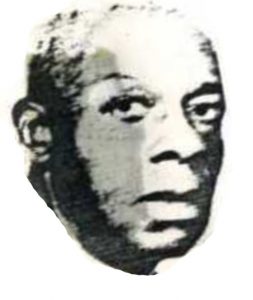George G.M. James
James, George G.M. *
George G. M. James (1893-1956) a professor of ancient Greek, was born in British Guiana and lectured at a number of North American universities. He gained widespread notoriety with his 1954 book,  Stolen Legacy(a), in which he claimed that “the term Greek philosophy is in fact wrong because there is no such philosophy. The Greeks did not have the natural ability necessary for the development of philosophy. The Greek philosophy was not invented by Greeks but by the Blacks of Northern Africa, the Egyptians”. His ‘chip-on-the-shoulder’ Afrocentrism pervades his book, often sinking into downright racism. A sceptic’s view of James’ claims gives some balance to the debate(b).
Stolen Legacy(a), in which he claimed that “the term Greek philosophy is in fact wrong because there is no such philosophy. The Greeks did not have the natural ability necessary for the development of philosophy. The Greek philosophy was not invented by Greeks but by the Blacks of Northern Africa, the Egyptians”. His ‘chip-on-the-shoulder’ Afrocentrism pervades his book, often sinking into downright racism. A sceptic’s view of James’ claims gives some balance to the debate(b).
Our interest in James stems from his claim[858.109] that both Republic and Timaeus were stolen by Plato and quotes the 3rd century AD biographer, Diogenes Laërtius (8.85), in support of his contention. Although he touches on the authorship of Timaeus he does not refer to the Atlantis passages.
James’ unorthodoxy is not confined to a criticism of the origins of Greek philosophy, but elsewhere claims that the pyramids were built around 10,000 BC, predating the claims of Graham Hancock and Robert Bauval by decades.
(a) (99+) Stolen Legacy | karahbura nebjari – Academia.edu *
Timaeus (Dialogue)
Timaeus is the title of one of the two Atlantis Dialogues of Plato, named after one of the participants. In it we encounter the first clear reference to Atlantis. The dialogue is usually seen as a continuation of The Republic. The first Latin translation of Timaeus comes from Cicero in the first century BC(b), but unfortunately from the point of view of Atlantology, he only translated 27d-47b, just missing the Atlantis passages. One of the most influential Latin translations came from Chalcidius in the 4th century AD. However, it fell to the 15th-century Marsilio Ficino to produce the first translation of Plato’s complete works(c).
Some claim that Timaeus is the only character used by Plato that does not appear to have actually existed in ancient Greece. However, it is more generally accepted that the Timaeus in the Dialogues was based on a real astronomer and mathematician known as Timaeus of Locri, who was a Pythagorean philosopher who formed his own Pythagorean School in Locri in Southern Italy when the School in Croton was forced to close. Timaeus is said to have been around 70 at the time that the Dialogues were written.
What is at issue is the actual authorship of Plato’s Timaeus, such as by Hermippus of Smyrna (3rd cent. BC) who claimed that Plato copied his text from the philosopher Philolaus. This suggestion has been debated until modern times(a).
>Nikolai Zhirov‘s [458.55] comments on the authorship question have been published by Atlantisforschung “With regard to the Timaeus, a rumor was already circulating in antiquity, namely that it was not written by Plato. The first to question Plato’s authorship was Timon the Pyrrhonist, who claimed that Plato based his Timaeus on a book someone had given him. Timon lived in the century after Plato, and it is therefore quite likely that he knew some details of the philosopher’s life that were later forgotten.
Many ancient scholars offer diverse views on the origin of Timaeus: some attributed him to Orcellus Lucanus, others to Timaeus of Locri, while others wrote that Plato was a member of a Pythagorean brotherhood but was later expelled from it, for claiming as his own knowledge he had acquired there.”(d)<
George G. M. James claimed [0858.109] that both Republic and Timaeus were stolen by Plato and quotes the 3rd century AD biographer, Diogenes Laërtius (8.85), in support of his contention. Although he touches on the authorship of Timaeus he does not specifically refer to the Atlantis passages.
(a) https://plato.stanford.edu/entries/philolaus/
(b) See: https://atlantipedia.ie/samples/archive-2559/
